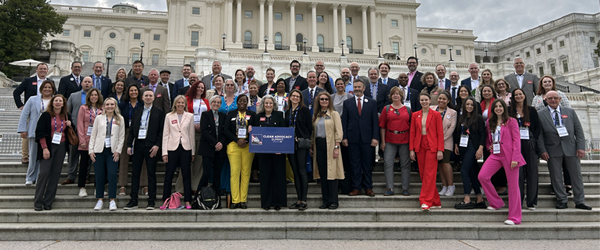New SEC Ruling Requires Greenhouse Gas Reporting
According to recently released fact sheet, the U.S. Securities and Exchange Commission (SEC) has announced the adoption of final rules that require some companies to disclose certain climate-related information, including greenhouse gas emissions, in registration statements and annual reports.
First introduced by the SEC in March 2022, these final rules require a registrant to disclose, among other things:
- Material climate-related risks
- Activities to mitigate or adapt to such risks
- Information about the registrant’s board of directors’ oversight of climate-related risks and management’s role in managing material climate-related risks
- Information on any climate-related targets or goals that are material to the registrant’s business, results of operations, or financial condition.
To facilitate investors’ assessment of certain climate-related risks, the final rules also require:
- Disclosure of Scope 1 (direct) and/or Scope 2 (indirect) greenhouse gas emissions on a phased-in basis by certain larger registrants when those emissions are material
- The filing of an attestation report covering the required disclosure of such registrants’ Scope 1 and/or Scope 2 emissions, also on a phased-in basis
- Disclosure of the financial statement effects of severe weather events and other natural conditions including, for example, costs and losses.
According to the Associated Press (AP), these final rules are weaker than those first proposed two years ago. Contrary to the original rules, companies won’t be required to report some indirect emissions known as Scope 3, which don’t come directly from a company’s operation, but instead, from its supply chain.
The final rules also reduced the reporting requirements for Scope 1 and Scope 2 emissions. Companies only need to report “material”—that is, significant—emissions, and smaller companies don’t need to report their emissions at all.
According to AP, nearly 2,800 U.S. companies will have to make disclosures. Roughly 540 foreign companies doing business within the United States will have to report climate information. The larger companies will have to start reporting emissions for fiscal year 2026; smaller companies will not have to disclose emissions but will still have to disclose some climate risk information for fiscal year 2027.
Regarding how the SEC’s final rules might affect the professional cleaning community, Steve Ashkin, founder of The Ashkin Group and ISSA Sustainability Committee Co-Chair, commented, “It means reporting on environmental risks is coming, whether one believes in mankind’s contribution to climate change or not. Further, it encourages our industry’s adoption of sustainability to minimize risks and ensure business continuity.”
















